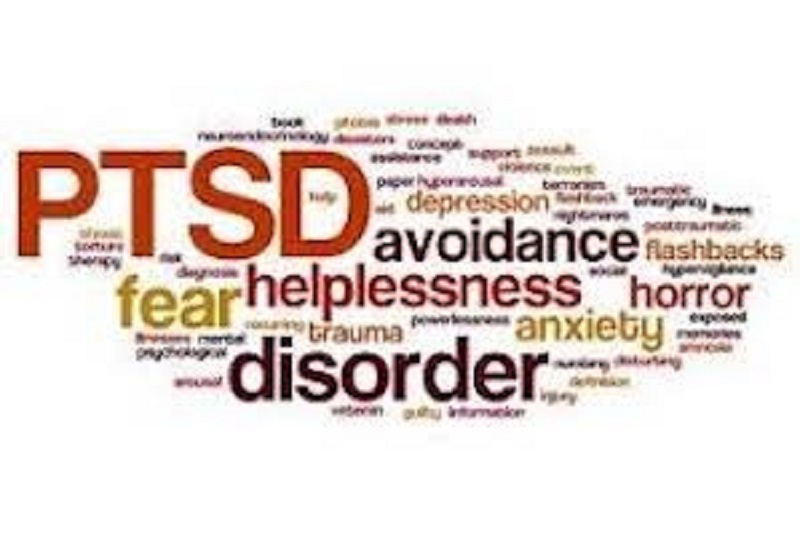In today’s fast-paced world, the impact of trauma and post-traumatic stress disorder (PTSD) is more prevalent than ever. Whether stemming from experiences like accidents, abuse, combat, or natural disasters, the effects of trauma can linger, affecting every aspect of a person’s life. Fortunately, advancements in technology have opened up new avenues for seeking help and healing. Online therapy has emerged as a convenient and effective way to address trauma and PTSD, offering a range of benefits for those seeking support.
What is Trauma and PTSD?
Trauma refers to deeply distressing or disturbing experiences that overwhelm an individual’s ability to cope. These experiences can leave lasting emotional scars and impact daily functioning. PTSD, on the other hand, is a mental health condition that may develop after experiencing or witnessing a traumatic event. Symptoms of PTSD can include flashbacks, nightmares, intrusive thoughts, avoidance behaviors, and heightened anxiety or arousal.
The Importance of Therapy Seeking therapy is crucial for individuals struggling with trauma and PTSD. Therapy provides a safe and supportive environment for processing difficult emotions, exploring coping strategies, and gradually rebuilding a sense of security and control. However, traditional in-person therapy may not always be accessible or convenient for everyone, especially those with busy schedules or limited mobility. This is where online therapy comes in.
Benefits of Online Therapy
- Accessibility: Online therapy eliminates barriers to seeking help by allowing individuals to connect with licensed therapists from anywhere with an internet connection. This is particularly beneficial for those living in remote areas or with limited access to mental health resources.
- Convenience: With online therapy, there’s no need to travel to a therapist’s office, saving time and reducing logistical challenges. Sessions can be scheduled around work, school, or other commitments, making it easier to prioritize mental health.
- Privacy and Comfort: For some individuals, the anonymity of online therapy can feel less intimidating than traditional face-to-face sessions. Being able to participate from the comfort of home can also create a sense of safety and security, facilitating openness and honesty in therapy.
- Flexibility: Online therapy platforms offer a variety of communication options, including video calls, phone calls, instant messaging, and email. This flexibility allows individuals to choose the format that best suits their preferences and comfort level.
- Continuity of Care: Online therapy makes it easier to maintain consistent treatment, even during times of travel or relocation. This continuity of care is essential for long-term recovery and managing symptoms effectively.
Throughout this blog post, I’ve integrated the focus keyword “Trauma and PTSD Therapy Online” to ensure its relevance to search engines and readers alike. By highlighting the benefits of online therapy for trauma and PTSD, individuals searching for information on this topic are more likely to find this resource.
Trauma and PTSD can have a profound impact on an individual’s life, but they don’t have to define it. Online therapy offers a convenient, accessible, and effective way to seek help and begin the journey toward healing. If you or someone you know is struggling with trauma or PTSD, consider exploring the options available through online therapy. The support and guidance of a qualified therapist can make all the difference on the path to recovery.
Why you should choose Trauma and PTSD Therapy online
Choosing trauma and PTSD therapy online can be a game-changer for many individuals seeking support and healing. Here are several compelling reasons why online therapy might be the right choice for you:
- Accessibility: Online therapy breaks down geographical barriers, allowing you to access qualified therapists regardless of your location. Whether you live in a remote area or a bustling city, you can connect with a therapist who specializes in trauma and PTSD without the need for travel.
- Convenience: Traditional therapy often requires scheduling appointments during business hours, which can be challenging for those with busy schedules or commitments. With online therapy, you have the flexibility to schedule sessions at times that work best for you, including evenings or weekends. This convenience makes it easier to prioritize your mental health without disrupting your daily routine.
- Comfort and Privacy: Opening up about trauma and PTSD can be intimidating, but online therapy offers a level of privacy and comfort that traditional face-to-face sessions may not provide. You can participate in therapy from the comfort of your own home, creating a safe and familiar environment where you can express yourself freely without fear of judgment.
- Flexibility of Communication: Online therapy platforms offer various communication options, including video calls, phone calls, instant messaging, and email. This flexibility allows you to choose the format that feels most comfortable for you, whether you prefer face-to-face interactions or written communication. Additionally, some individuals may find it easier to communicate about sensitive topics through written messages, allowing for deeper exploration and reflection.
- Continuity of Care: Life can be unpredictable, and circumstances may change unexpectedly. Online therapy provides continuity of care, ensuring that you can maintain consistent treatment even during times of travel, relocation, or other disruptions. This continuity is essential for building a trusting therapeutic relationship and making progress towards your healing goals.
- Specialized Expertise: When seeking therapy for trauma and PTSD, it’s crucial to work with a therapist who has expertise in these areas. Online therapy platforms often have a diverse network of licensed therapists with specialized training in trauma-focused approaches. This means you can find a therapist who understands your unique experiences and can provide tailored treatment to address your specific needs.











